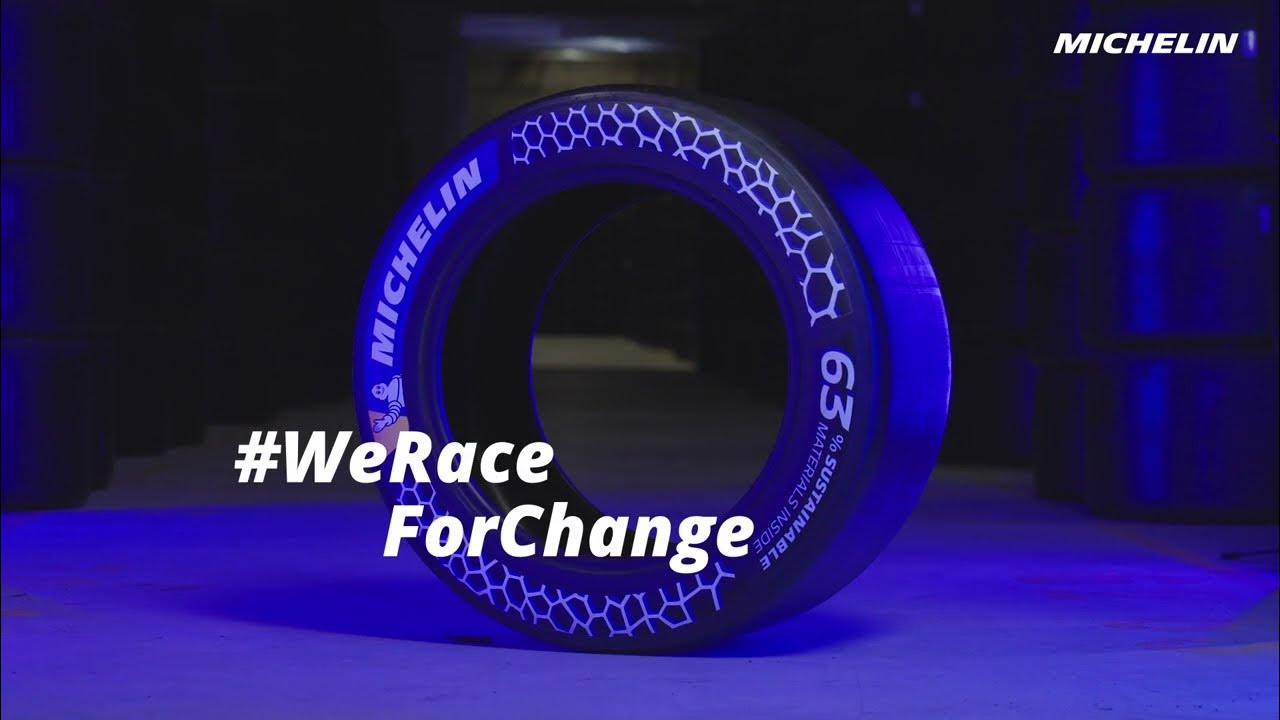
24h Le Mans

About
The 24 Hours of Le Mans is an endurance-focused sports car race held annually near the town of Le Mans, France. It is widely considered to be one of the world's most prestigious races, and is one of the races along with the Monaco Grand Prix and Indianapolis 500 that form the Triple Crown of Motorsport, and is also one of the races alongside the 24 Hours of Daytona and 12 Hours of Sebring that make up the informal Triple Crown of endurance racing. Run since 1923, it is the oldest active endurance racing event in the world.
History
1923 to 1939
The 24 Hours of Le Mans began in 1923 with a planned three-year format, including cumulative distances. However, this idea was dropped in 1928. The early years saw French, British, and Italian dominance, led by Bugatti, Bentley, and Alfa Romeo. Innovations, like aerodynamic designs, emerged in the late 1930s. General strikes and World War II led to a ten-year hiatus until the event resumed in 1949.
1949 to 1969
The post-1949 era of the 24 Hours of Le Mans saw increased competition as major manufacturers like Ferrari joined. Ferrari secured its first victory in 1949. The 1955 Le Mans disaster prompted safety improvements. Despite enhancements, speeds rose with the shift to closed-cockpit coupés. Ford's GT40 ended Ferrari's dominance, winning four straight from 1966 to 1969.
1970 to 1980
The 1970s at Le Mans witnessed a shift to extreme speeds and specialized sportscar designs. A rolling Indianapolis start replaced the traditional standing start for faster acceleration. Dominant purpose-built sportscars like the Porsche 917, 935, and 936 became commonplace. French manufacturers Matra-Simca and Renault secured victories, ending a French victory drought since 1950. Privateer constructors, including John Wyer's Mirage and Jean Rondeau's chassis, achieved notable wins in 1975 and 1980.
1981 to 1993
In the 1980s, Porsche's dominance at Le Mans unfolded with the Group C race car formula, emphasizing fuel efficiency. The affordable 956 and 962 secured six consecutive wins. Jaguar and Mercedes-Benz interrupted Porsche's streak with victories in 1988 and 1990. Peugeot's 905 dominated in 1992-1993. Significant safety changes, including chicanes, occurred in 1990. Mazda's rotary-powered 787B clinched Japan's first win in 1991.
1994 to 1999
Post-World Sportscar Championship demise, the 1990s at Le Mans saw a resurgence of production-based grand tourer cars. Porsche utilized a loophole with the Dauer 962 Le Mans in 1994. Supercars, including McLaren's BMW V12-powered F1 GTR in 1995, exploited production rules. Porsche, Mercedes-Benz, Toyota, Nissan, Panoz, and Lotus entered GT categories. BMW's 1999 overall win marked the era's peak. The ACO's influence led to the American Le Mans Series in 1999, later merging into the United SportsCar Championship.
2000 to 2005
Post-1999, escalating costs prompted major manufacturers to exit sports car racing, leaving only Audi and Cadillac. Audi continued dominance with the R8 after Cadillac's 2002 exit. Privateer Bentleys surpassed Audi in 2003. Chevrolet Corvette Racing Team secured GTS victories from 2001 to 2004. Attempts by Panoz, Chrysler, and MG to challenge Audi were unsuccessful.
2006 to 2013
Audi's R8 dominance led to a new era in 2006 with the diesel-powered R10 TDI, achieving the first diesel win at Le Mans. Peugeot joined with the 908 HDi FAP in 2007. In 2008, Audi's R10 TDI won by less than 10 minutes. Peugeot's 2009 victory featured an energy-recovery system. Audi's reliability prevailed in 2010, securing a 1-2-3 finish. The subsequent years saw Audi's hybrid R18 e-tron quattro claim victory in 2012, marking the first hybrid win.
2014 to 2020
Le Mans regulations in 2014 mandated closed cockpits, altered hybrid systems, and introduced the slow zone system. Porsche reentered, winning from 2015 to 2017 with the 919 hybrid. Audi withdrew in 2016, and Nissan's 2015 attempt was its last. Toyota secured victories from 2018 to 2022, with the 2020 race held without spectators due to the COVID-19 pandemic.
2021 to Present
In 2021, the Hypercar class debuted at Le Mans, allowing Le Mans Hypercars and, from 2023, LMDh cars. The race was postponed to August. Non-hybrid LMP1 cars participated in 2021-2022, mainly by Alpine. Toyota and Glickenhaus also competed. Hypercar regulations granted design freedom, leading to unique entries like the wingless Peugeot 9X8 in 2022. LMP2 regulations extended to 2024. LMDh cars, hydrogen-powered prototypes, and LMGT3 will debut in 2025.
The Season of 2024
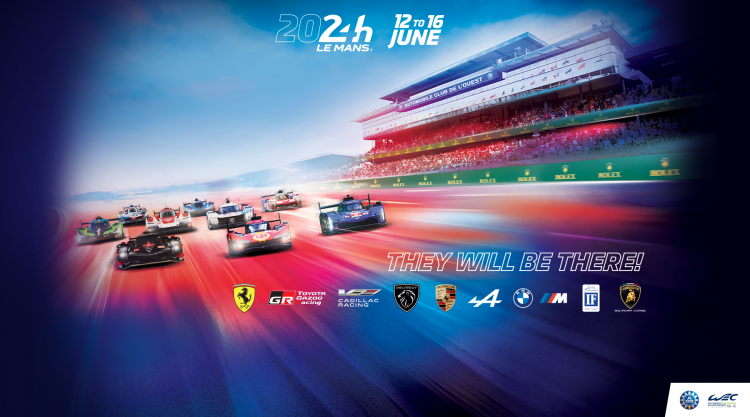
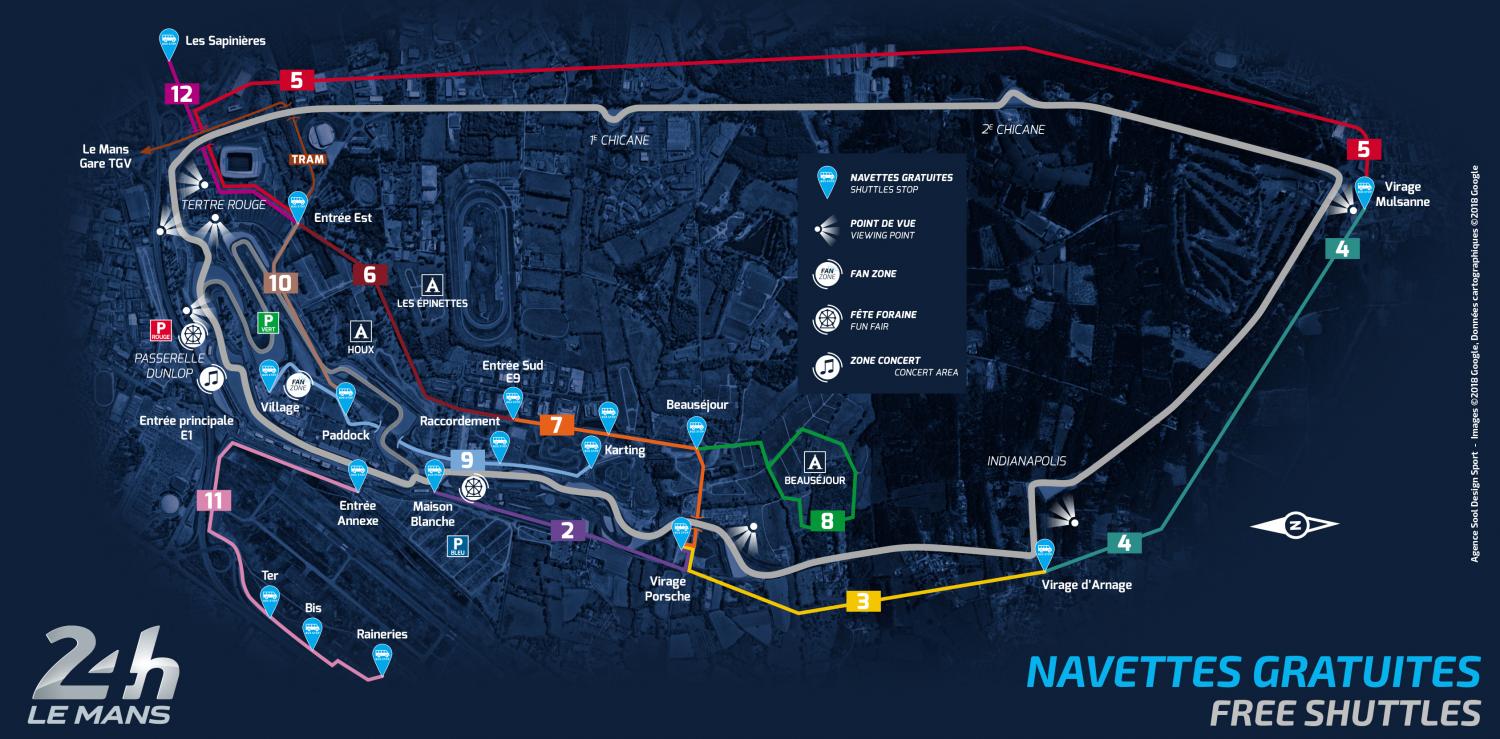
Background
The 2024 24 Hours of Le Mans will be the 92nd running of the 24-hour race organised by the Automobile Club de l'Ouest. The LM GTE Am class of 2023 will be transitioned to LMGT3 for the 2024 race. While LMP2 cars will not be running in the 2024 FIA World Endurance Championship, Automobile Club de l’Ouest will allocate a minimum of 15 grid slots to LMP2 cars for the race. A number of new and returning manufacturers are hoping to field cars in the 2024 event, including Alpine, Ford, BMW, and McLaren. LMGT3 models that do not compete for the full 2024 FIA WEC seasons are not permitted to enter at the 24 hour race.
Le Mans automatic invites include WEC, ELMS, ALMS, and GTWCE championship winners. Second-place LMP2 ELMS finishers and 3 IMSA teams receive invites, one in Hypercar at IMSA's discretion, and one each for Jim Truman and Bob Akin awards.
Le Mans automatic invites include WEC, ELMS, ALMS, and GTWCE championship winners. Second-place LMP2 ELMS finishers and 3 IMSA teams receive invites, one in Hypercar at IMSA's discretion, and one each for Jim Truman and Bob Akin awards.
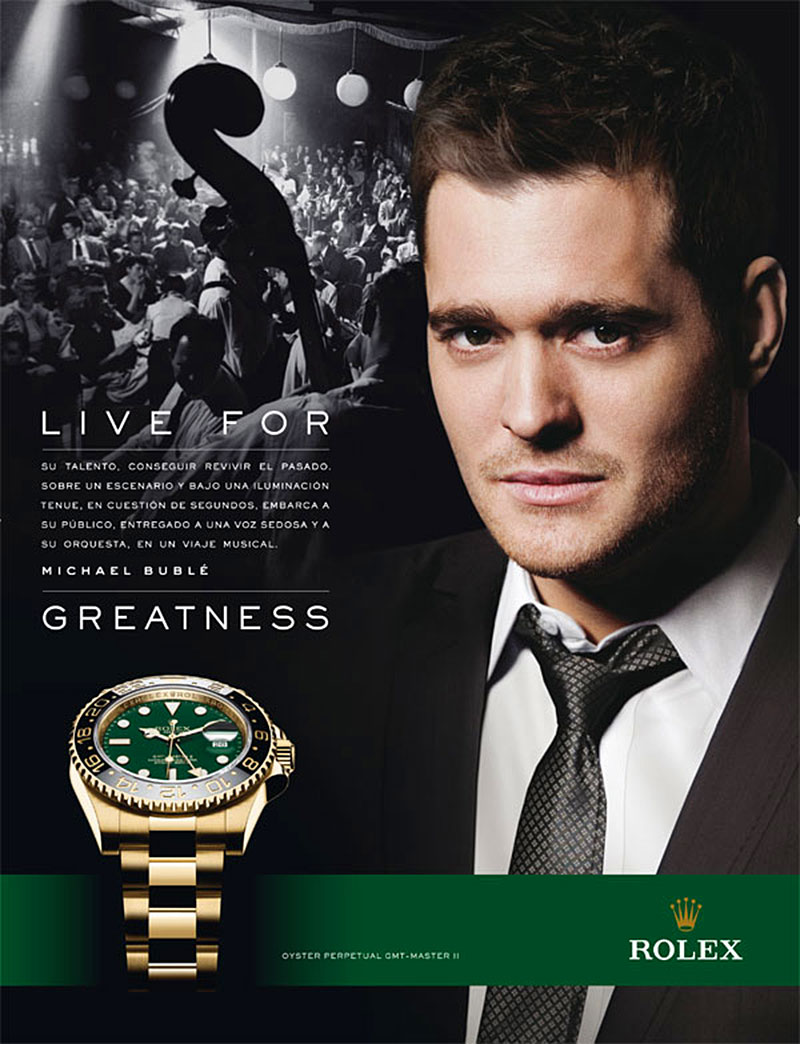
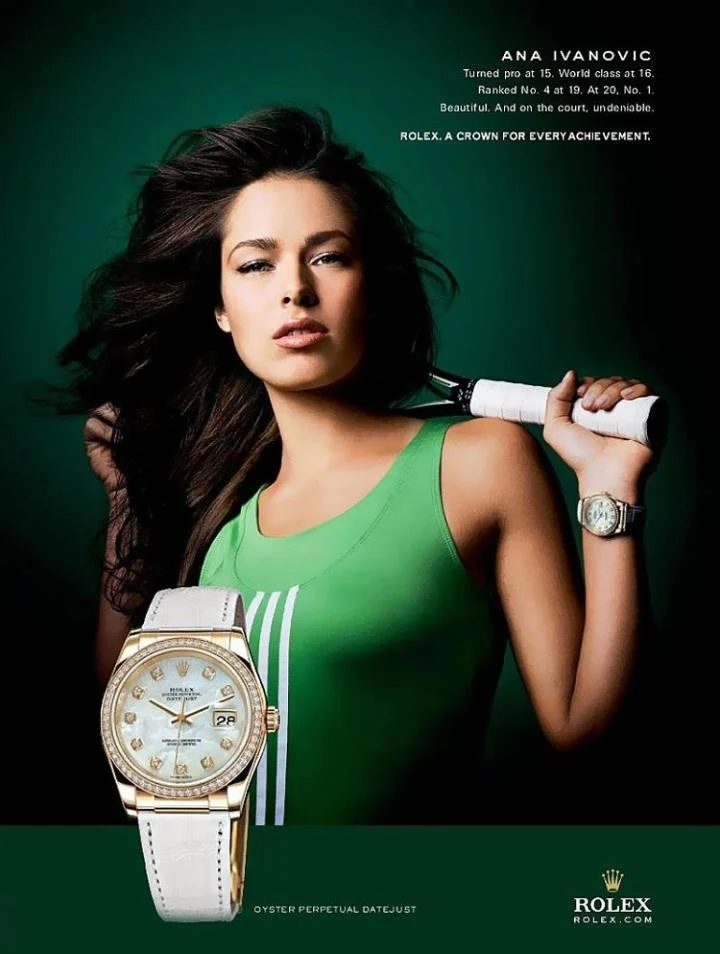
Entries for 2024 - Hypercar

CADILLAC RACING
CAT HYPERCAR
CAR CADILLAC V-SERIES.R
TIRES MICHELIN
Car Numbers
0 2
0 3

PORSCHE PENSKE MOTORSPORT
CAT HYPERCAR
CAR PORCHE 963
TIRES MICHELIN
Car Numbers
0 4
0 5
0 6
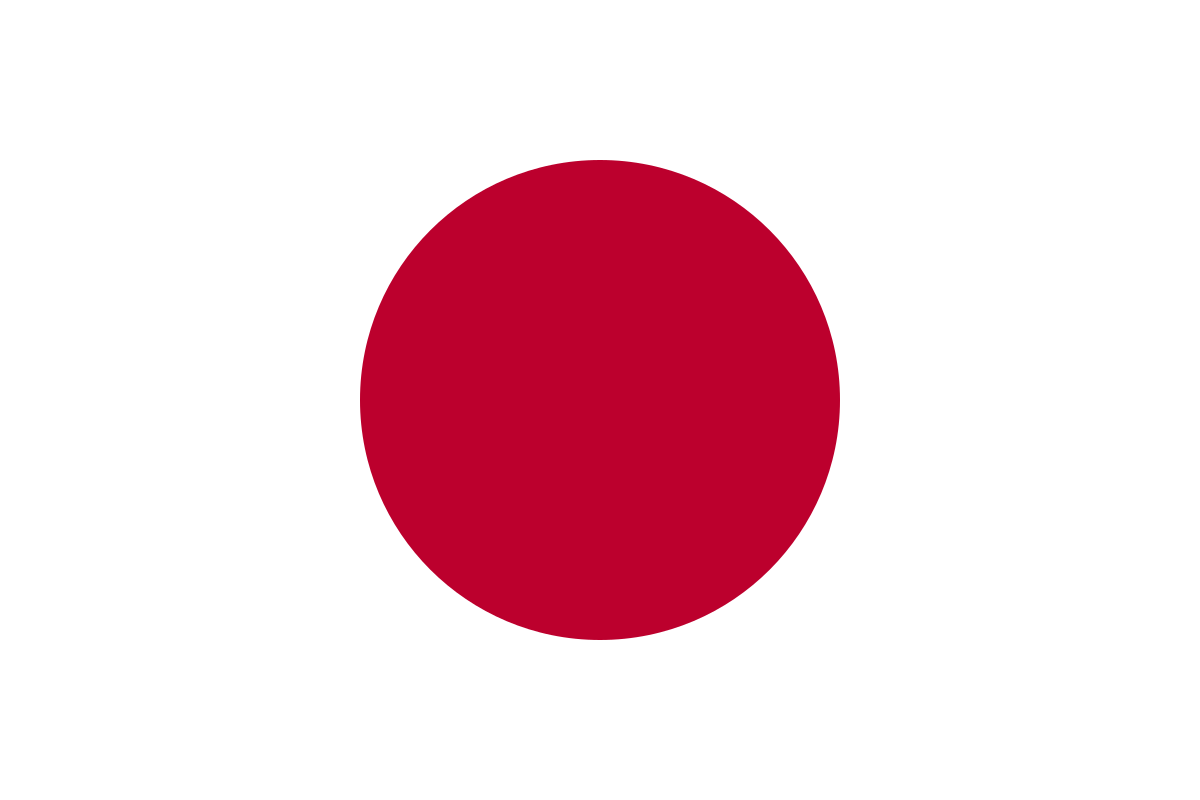
TOYOTA GAZOO RACING
CAT HYPERCAR
CAR TOYOTA GR010 - HYBRID
TIRES MICHELIN
Car Numbers
0 7
0 8

ISOTTA FRASCHINI
CAT HYPERCAR
CAR ISOTTA FRASCHINI TIPO6-C
TIRES MICHELIN
Car Numbers
1 1
HERTZ TEAM JOTA
CAT HYPERCAR
CAR PORCHE 963
TIRES MICHELIN
Car Numbers
1 2
3 8

BMW M TEAM WRT
CAT HYPERCAR
CAR BMW M HYBRID V8
TIRES MICHELIN
Car Numbers
1 5
2 0

LAMBORGHINI IRON LYNX
CAT HYPERCAR
CAR LAMBORGHINI SC63
TIRES MICHELIN
Car Numbers
1 9
6 3

ALPINE ENDURANCE TEAM
CAT HYPERCAR
CAR ALPINE A424
TIRES MICHELIN
Car Numbers
3 5
3 6

FERRARI AF CORSE
CAT HYPERCAR
CAR FERRARI 499P
TIRES MICHELIN
Car Numbers
5 0
5 1
8 3

PEUGEOT TOTALENERGIES
CAT HYPERCAR
CAR PEUGEOT 9X8
TIRES MICHELIN
Car Numbers
9 3
9 4

PROTON COMPETITION
CAT HYPERCAR
CAR PORCHE 963
TIRES MICHELIN
Car Numbers
9 9

WHELEN CADILLAC RACING
CAT HYPERCAR
CAR CADILLAC V-SERIES.R
TIRES MICHELIN
Car Numbers
3 1 1
Entries for 2024 - LM P2

PROTON COMPETITION
CAT LM P2
CAR ORECA 07 - GIBSON
TIRES GOODYEAR
Car Numbers
0 9
VECTOR SPORT
CAT LM P2
CAR ORECA 07 - GIBSON
TIRES GOODYEAR
Car Numbers
1 0

AO BY TF
CAT LM P2
CAR ORECA 07 - GIBSON
TIRES GOODYEAR
Car Numbers
1 4
UNITED AUTOSPORTS
CAT LM P2
CAR ORECA 07 - GIBSON
TIRES GOODYEAR
Car Numbers
2 2

UNITED AUTOSPORTS USA
CAT LM P2
CAR ORECA 07 - GIBSON
TIRES GOODYEAR
Car Numbers
2 3
NIELSEN RACING
CAT LM P2
CAR ORECA 07 - GIBSON
TIRES GOODYEAR
Car Numbers
2 4

ALGARVE PRO RACING
CAT LM P2
CAR ORECA 07 - GIBSON
TIRES GOODYEAR
Car Numbers
2 5

IDEC SPORT
CAT LM P2
CAR ORECA 07 - GIBSON
TIRES GOODYEAR
Car Numbers
2 8

AF COURSE
CAT LM P2
CAR ORECA 07 - GIBSON
TIRES GOODYEAR
Car Numbers
1 8 3

DUQUEINE TEAM
CAT LM P2
CAR ORECA 07 - GIBSON
TIRES GOODYEAR
Car Numbers
3 0

DKR ENGINEERING
CAT LM P2
CAR ORECA 07 - GIBSON
TIRES GOODYEAR
Car Numbers
3 3
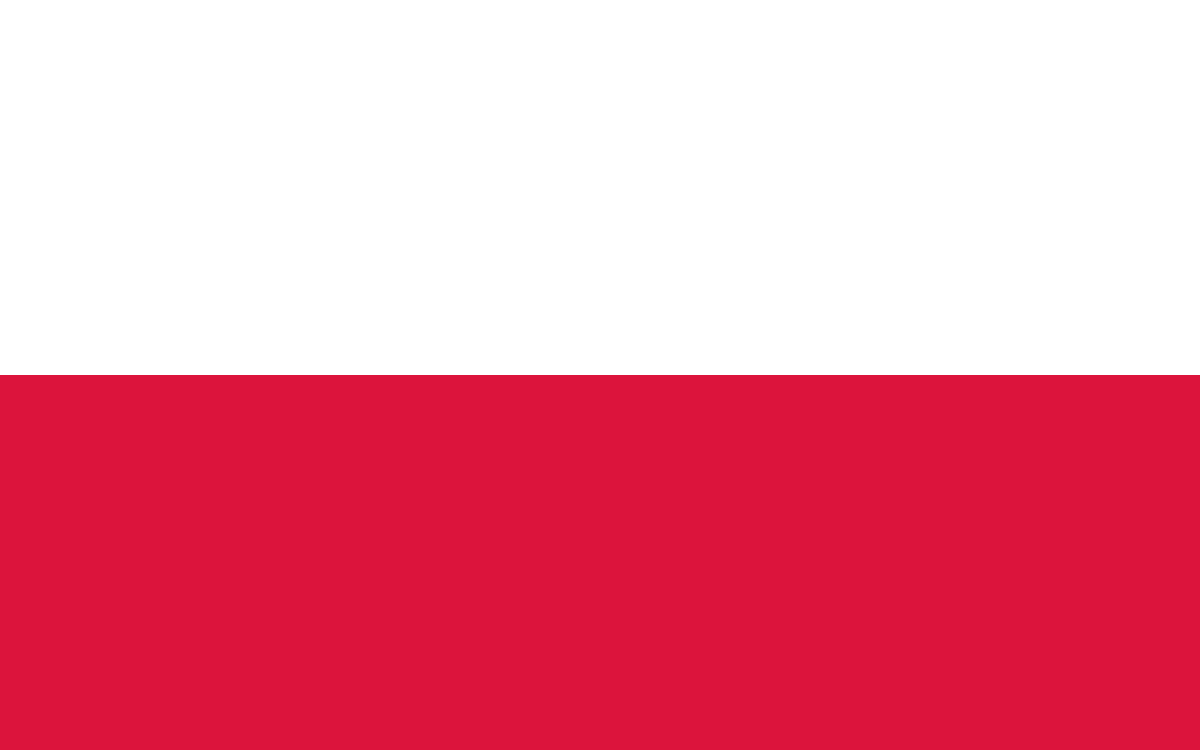
INTER EUROPOL COMPETITION
CAT LM P2
CAR ORECA 07 - GIBSON
TIRES GOODYEAR
Car Numbers
34
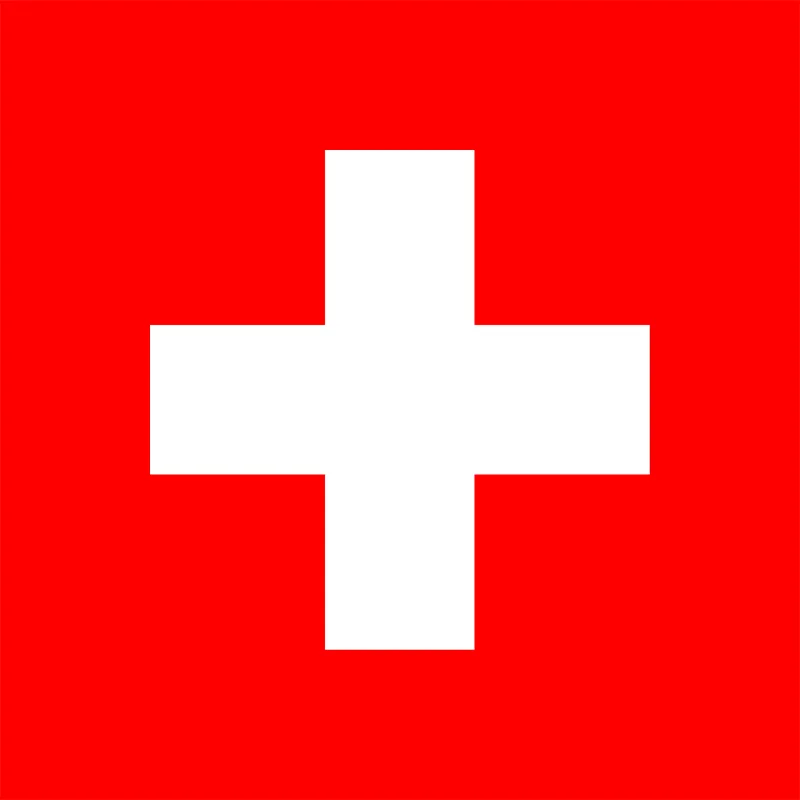
COOL RACING
CAT LM P2
CAR ORECA 07 - GIBSON
TIRES GOODYEAR
Car Numbers
3 7

CROWDSTRIKE RACING BY APR
CAT LM P2
CAR ORECA 07 - GIBSON
TIRES GOODYEAR
Car Numbers
4 5
4 7

PANIS RACING
CAT LM P2
CAR ORECA 07 - GIBSON
TIRES GOODYEAR
Car Numbers
6 5
Entries for 2024 - LMGT3

HEART OF RACING TEAM
CAT LMGT3
CAR ASTON MARTIN VANTAGE AMR LMGT3
TIRES GOODYEAR
Car Numbers
2 7

TEAM WRT
CAT LMGT3
CAR BMW M4 LMGT3
TIRES GOODYEAR
Car Numbers
3 1
4 6

PROTON COMPETITION
CAT LMGT3
CAR FORD MUSTANG LMGT3
TIRES GOODYEAR
Car Numbers
4 4
7 7
8 8

VISTA AF CORSE
CAT LMGT3
CAR FERRARI 296 LMGT3
TIRES GOODYEAR
Car Numbers
5 4
5 5
UNITED AUTOSPORTS
CAT LMGT3
CAR MCLAREN 720S LMGT3 EVO
TIRES GOODYEAR
Car Numbers
5 9
9 5

IRON LYNX
CAT LMGT3
CAR LAMBORGHINI HURACAN LMGT3 EVO2
TIRES GOODYEAR
Car Numbers
6 0
JMW MOTORSPORT
CAT LMGT3
CAR FERRARI 296 LMGT3
TIRES GOODYEAR
Car Numbers
6 6
INCEPTION RACING
CAT LMGT3
CAR MCLAREN 720S LMGT3 EVO
TIRES GOODYEAR
Car Numbers
7 0

AKKODIS ASP TEAM
CAT LMGT3
CAR LEXUS RC F LMGT3
TIRES GOODYEAR
Car Numbers
7 8
8 7
TF SPORT
CAT LMGT3
CAR CORVETTE Z06 LMGT3.R
TIRES GOODYEAR
Car Numbers
8 1
8 2

IRON DAMES
CAT LMGT3
CAR LAMBORGHINI HURACAN LMGT3 EVO2
TIRES GOODYEAR
Car Numbers
8 5
GR RACING
CAT LMGT3
CAR FERRARI 296 LMGT3
TIRES GOODYEAR
Car Numbers
8 6

MANTHEY EMA
CAT LMGT3
CAR PORSCHE 911 GT3 R LMGT3
TIRES GOODYEAR
Car Numbers
9 1

MANTHEY PURERXCING
CAT LMGT3
CAR PORSCHE 911 GT3 R LMGT3
TIRES GOODYEAR
Car Numbers
9 2

SPIRIT OF RACE
CAT LMGT3
CAR FERRARI 296 LMGT3
TIRES GOODYEAR
Car Numbers
1 5 5

D'STATION RACING
CAT LMGT3
CAR ASTON MARTIN VANTAGE AMR LMGT3
TIRES GOODYEAR
Car Numbers
7 7 7
2023 - The Race of the Century
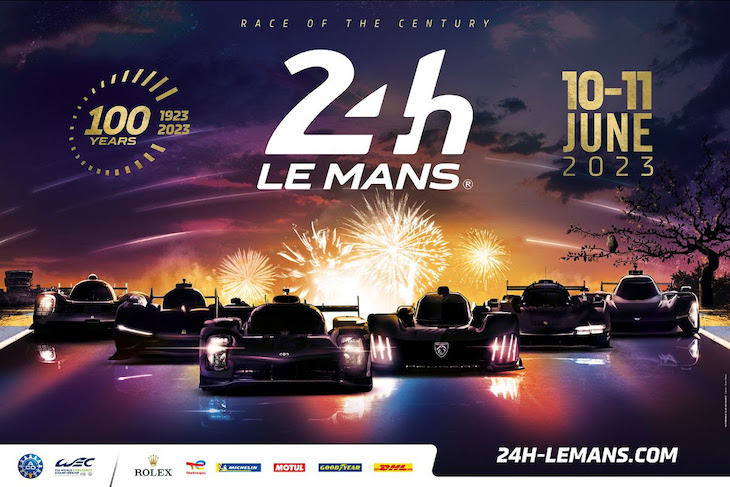
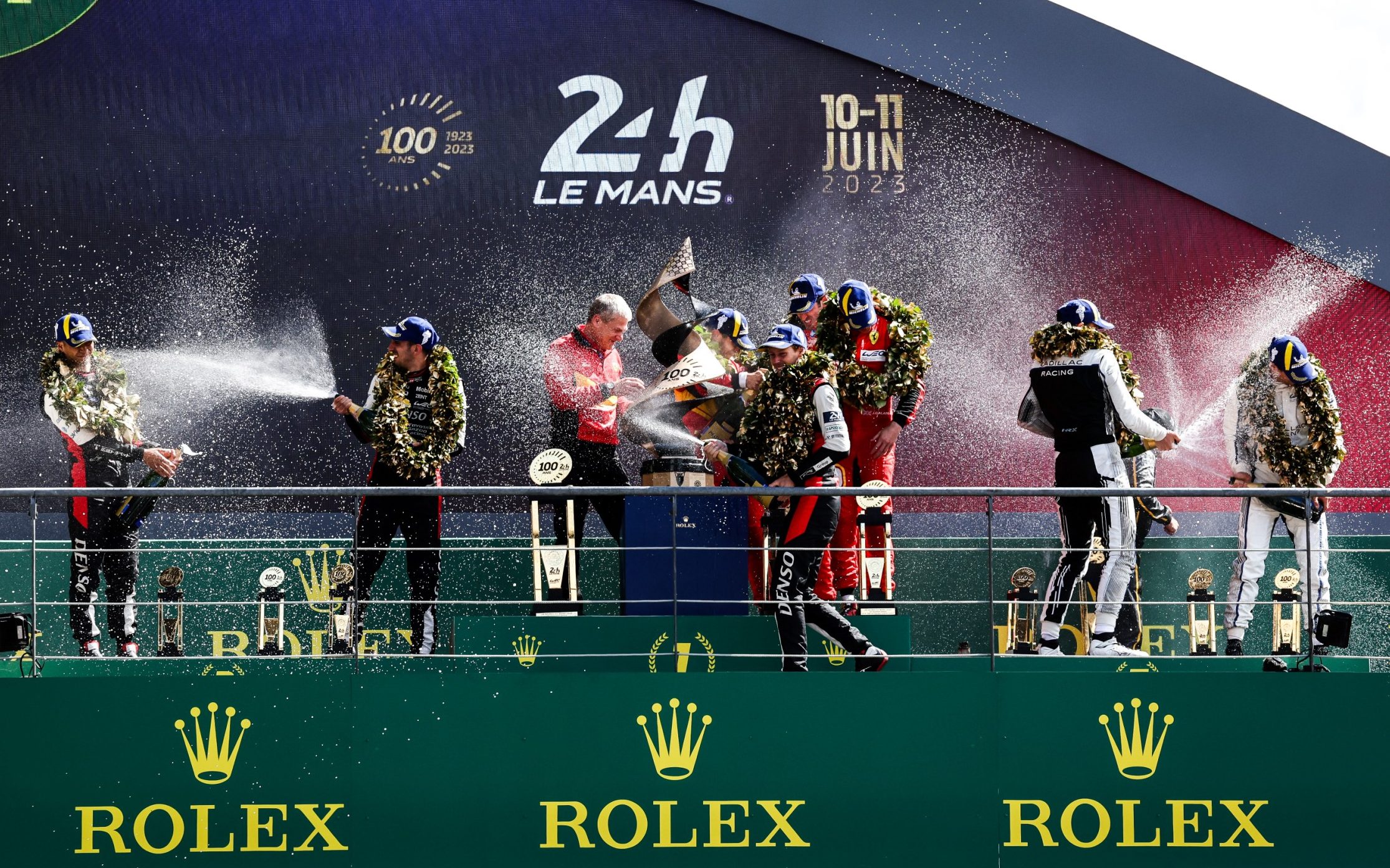
Background
The 2023 24 Hours of Le Mans, held at the Circuit de la Sarthe near Le Mans, France between 10 and 11 June, was the 91st running of the race, the 100th anniversary of its first edition in 1923 and the fourth round of the 2023 FIA World Endurance Championship.
Toyota drivers Sébastien Buemi, Brendon Hartley, and Ryō Hirakawa led the Hypercar Drivers' Championship with 71 points, followed by teammates Mike Conway, Kamui Kobayashi, and José María López. Ferrari AF Corse's Antonio Fuoco, Miguel Molina, and Nicklas Nielsen were third, with Cadillac Racing's Earl Bamber, Alex Lynn, and Richard Westbrook fourth. In the FIA Endurance Trophy, United Autosports' Philip Hanson and Frederick Lubin led LMP2, while Corvette Racing's Nicky Catsburg, Ben Keating, and Nicolás Varrone led LMGTE Am. Toyota led Ferrari in the Hypercar World Endurance Championship, United Autosports led Team WRT in LMP2, and Corvette Racing led Richard Mille AF Corse in LMGTE Am.
Toyota drivers Sébastien Buemi, Brendon Hartley, and Ryō Hirakawa led the Hypercar Drivers' Championship with 71 points, followed by teammates Mike Conway, Kamui Kobayashi, and José María López. Ferrari AF Corse's Antonio Fuoco, Miguel Molina, and Nicklas Nielsen were third, with Cadillac Racing's Earl Bamber, Alex Lynn, and Richard Westbrook fourth. In the FIA Endurance Trophy, United Autosports' Philip Hanson and Frederick Lubin led LMP2, while Corvette Racing's Nicky Catsburg, Ben Keating, and Nicolás Varrone led LMGTE Am. Toyota led Ferrari in the Hypercar World Endurance Championship, United Autosports led Team WRT in LMP2, and Corvette Racing led Richard Mille AF Corse in LMGTE Am.
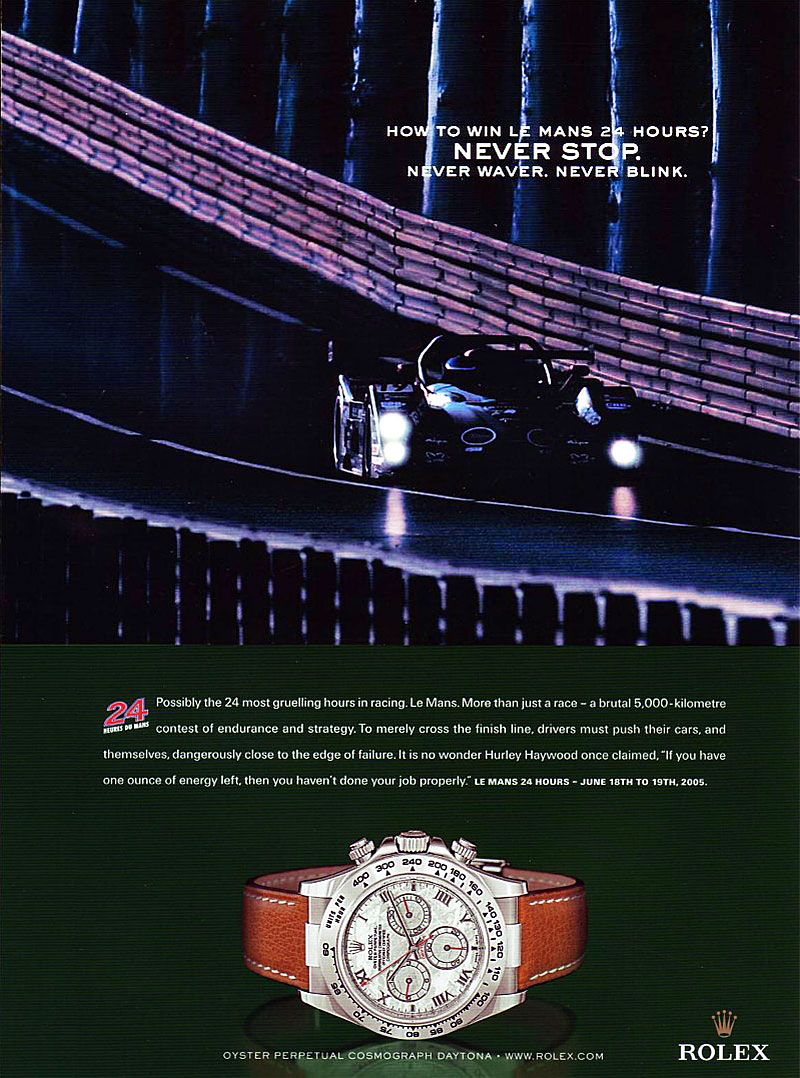
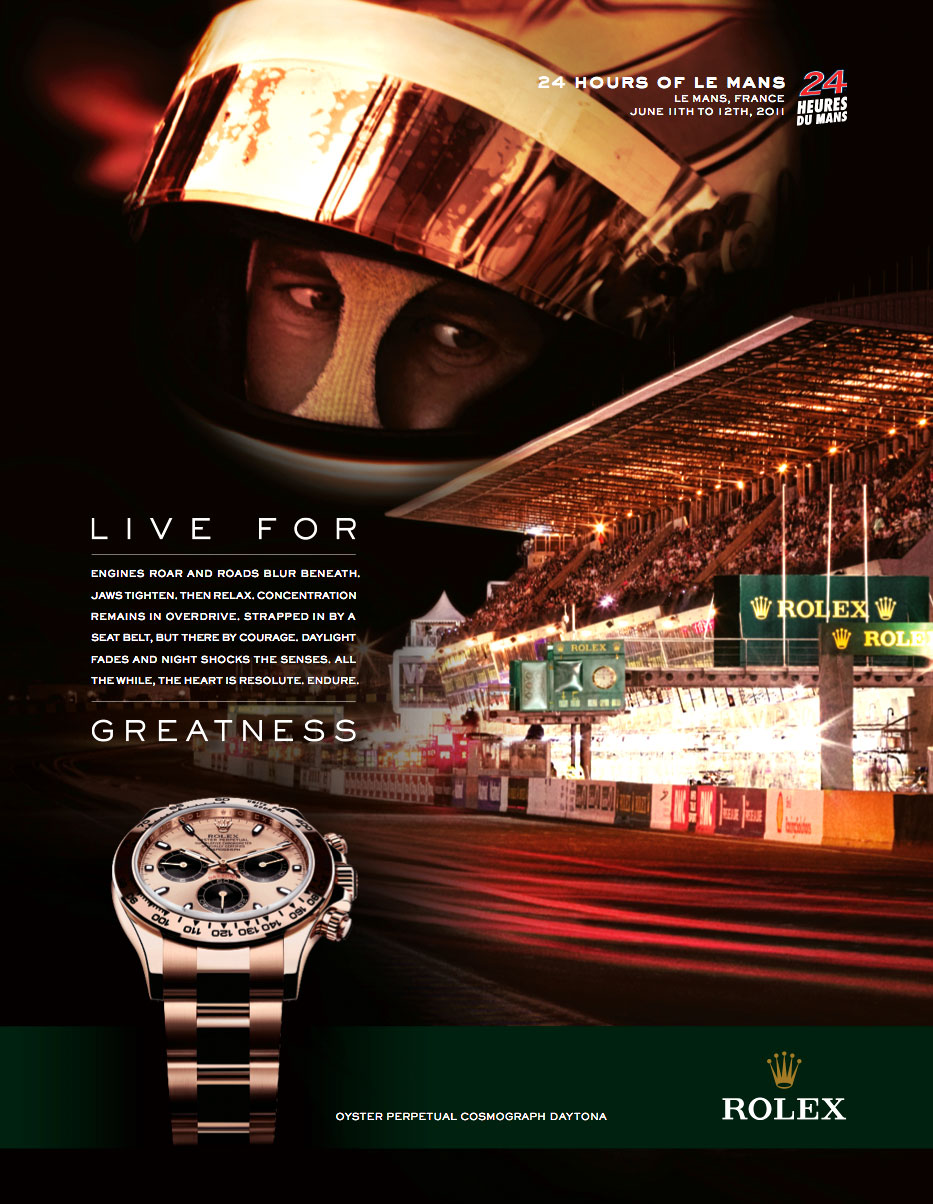
2023 - Podium Finish
Hypercar


FERRARI AF CORSE
5 1
CAR FERRARI 499P
TIRES MICHELIN
LAPS 342
ET 24:00:18.099


TOYOTA GAZOO RACING
0 8
CAR TOYOTA GR010 - HYBRID
TIRES MICHELIN
LAPS 342
ET 24:01:39.892


CADILLAC RACING
0 2
CAR CADILLAC V-SERIES.R
TIRES MICHELIN
LAPS 341
ET 24:02:37.016
LM P2


INTER EUROPOL COMPETITION
3 4
CAR ORECA 07 GIBSON
TIRES GOODYEAR
LAPS 328
ET 24:00:50.903


TEAM WRT
4 1
CAR ORECA 07 GIBSON
TIRES GOODYEAR
LAPS 328
ET 24:01:11.918


ALPINE ELF TEAM
3 6
CAR ORECA 07 GIBSON
TIRES GOODYEAR
LAPS 327
ET 24:02:54.479
LM GTE AM


Corvette Racing
3 3
CAR Chevrolet Corvette C8.R
TIRES MICHELIN
LAPS 313
ET 24:02:46.635


ORT BY TF
2 5
CAR Aston Martin Vantage AMR
TIRES MICHELIN
LAPS 312
ET 24:00:49.023

GR RACING
8 6
CAR Porsche 911 RSR-19
TIRES MICHELIN
LAPS 312
ET 24:01:46.477
Gallery












